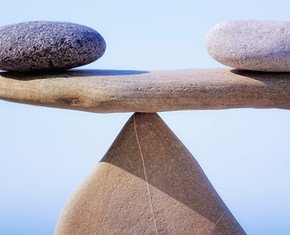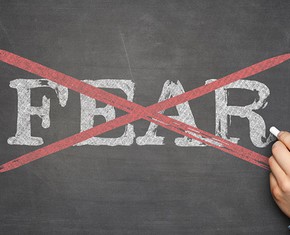The views expressed in our content reflect individual perspectives and do not represent the authoritative views of the Baha'i Faith.
During the past few weeks, I had been feeling rather “off my game” for some reason. My thoughts were jumbled, my attention unfocused, and I felt as though I wasn’t getting things done.
In an effort to correct the problem, I changed my diet, drank more water, and began to jump out of bed and into the day’s tasks without my usual time for prayer and meditation.
“No time for that today,” I thought. “I need to catch up!”
But as the weeks progressed, no amount of early rising and the frantic list-checking put my mind at ease. Finally, I became so distressed, I decided to pray about it.
“I am not getting anything done anyway,” I thought one morning. “Can’t hurt to pray.”
It didn’t take long. When I closed my eyes and calmed my mind, I immediately heard the phrase “spiritual thirst.”
“Yes, that’s it!” I said out loud. “I am spiritually thirsty!” For weeks, I’d been depriving myself of prayer and meditation time, thinking, “Oh, I’ll get to it later, then it’s the next day and the next. I’m spiritually dehydrated!”
Is that such a big deal? Is it possible that a few weeks of ignoring my spiritual side could have that big of an effect? I believe so. I think that is what started the problem in the first place — splashing a prayer on my face in the morning and running out the door instead of feeding my spirit the mindful, focused prayer and meditation time I need. Isn’t it interesting that I thought of changing my physical diet but not my spiritual diet? Duh. By not feeding my spirit, I was letting the “dark side” gain the edge.
RELATED: How Mindfulness Can Help Us Combat Anxiety
The Material vs. Spiritual Natures in Human Beings
Baha’is, as well as many other spiritual traditions, see life as an ongoing drama between two forces that play themselves out each and every day in each and every person. These two forces can be called the material vs. the spiritual, or darkness vs. light, or the lower nature vs. the higher nature. Abdu’l-Baha — the son and successor of Baha’u’llah, the prophet and founder of the Baha’i Faith — said as much in his book Some Answered Questions:
Know that there are two natures in man: the material and the spiritual … The material nature is the source of every imperfection, and the spiritual nature is the source of all perfection.
He also said that these two sides act in daily dynamic opposition to each other and that stasis, in this regard, does not really exist. In a talk in Paris in 1911 about “the evolution or progress of the spirit,” he emphasized that movement and change are inherent in all life:
Absolute repose does not exist in nature. All things either make progress or lose ground. Everything moves forward or backward, nothing is without motion.
So, when I began to ignore my spiritual side, I experienced it, especially mentally, in lack of focus and feeling jumbled and ineffective.
Abdu’l-Baha explained this when he spoke in Paris in 1911 about how the soul, which he called “the essence of life,” functions in two main ways — first, through its communication to the body through the brain and body; and second, through its independent activity in the realm of the spirit, which he called “the realm of vision.” He said:
The soul has two main faculties. (a) As outer circumstances are communicated to the soul by the eyes, ears, and brain of a man, so does the soul communicate its desires and purposes through the brain to the hands and tongue of the physical body, thereby expressing itself. The spirit in the soul is the very essence of life. (b) The second faculty of the soul expresses itself in the world of vision, where the soul inhabited by the spirit has its being, and functions without the help of the material bodily senses. There, in the realm of vision, the soul sees without the help of the physical eye, hears without the aid of the physical ear, and travels without dependence upon physical motion.
Prayer Quenches Our Thirst for Spiritual Energy
Thinking more deeply about this daily drama of the spiritual vs. the material, it became clear to me that staying focused on my spiritual reality is absolutely essential. When I don’t do that, various materialistic distractions, desires, and thoughts arise to steer me off course.
Abdu’l-Baha explained why this is true. Continuing the quote above and comparing a person to a lighted lamp, he said:
For example, look at this lamp: is not the light within it superior to the lamp which holds it? However beautiful the form of the lamp may be, if the light is not there its purpose is unfulfilled, it is without life—a dead thing. The lamp needs the light, but the light does not need the lamp.
The spirit does not need a body, but the body needs spirit, or it cannot live. The soul can live without a body, but the body without a soul dies.
RELATED: How Prayer Creates Positive States of Mind
When a person joins the Baha’i Faith, they commit to the daily practice of prayer and meditation. I think this idea of it being “obligatory” is a gift from Baha’u’llah — that “nudge” needed to stay on track, keeping my material being in the background and my spiritual being in the foreground. During the weeks I had failed to do that, I had paid the price. Abdu’l-Baha wrote:
Obligatory prayer is the very foundation of the Cause of God. Through it joy and vitality infuse the heart. Even if every grief should surround Me, as soon as I engage in conversing with God in obligatory prayer, all My sorrows disappear and I attain joy and gladness. A condition descendeth upon Me which I am unable to describe or express. Whenever, with full awareness and humility, we undertake to perform the Obligatory Prayer before God, and recite it with heartfelt tenderness, we shall taste such sweetness as to endow all existence with eternal life.
Meditation represents the second part of our daily spiritual sustenance. That’s a big topic, since it is so foundational for a Baha’i life, but it is also now a popular “wellness” strategy, complete with apps, vacations, magazines, and even cars!
Part two of this three-part series looks at the history of meditation, its benefits, and current trends. In part three, we’ll discuss the work of Herbert Benson, a pioneer in medical uses of meditation disguised under a different name!
















Comments
Sign in or create an account
Continue with Googleor